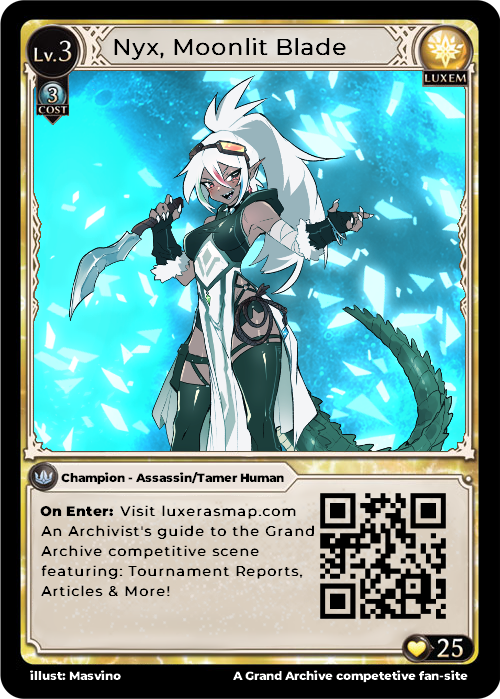RETURN TO ARTICLE LIST
Competitive Concepts: Influence, Wealth, Card Advantage and Impact
Written by Ver
Created 27 December, 2023
Last updated 27 December, 2023
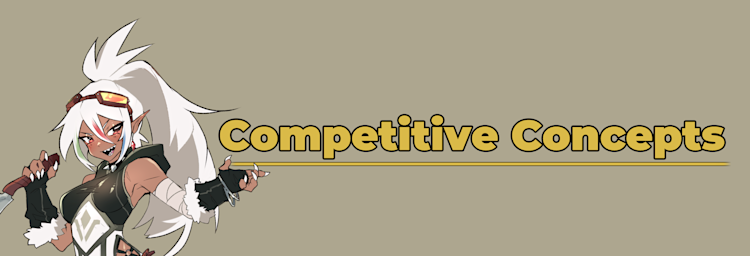
In card games, players gain and expend cards to advance their game plan. "Card Advantage" is a common term in the TCG space used to describe how a player has gain cards in hand and in play, often in direct comparison to their opponent.
Grand Archive has a unique system for paying costs, reserving costs in memory to activate cards and banishing cards from memory to materialize other cards. Because of this system, Card Advantage looks a little different in Grand Archive, so let's dive in!
Influence
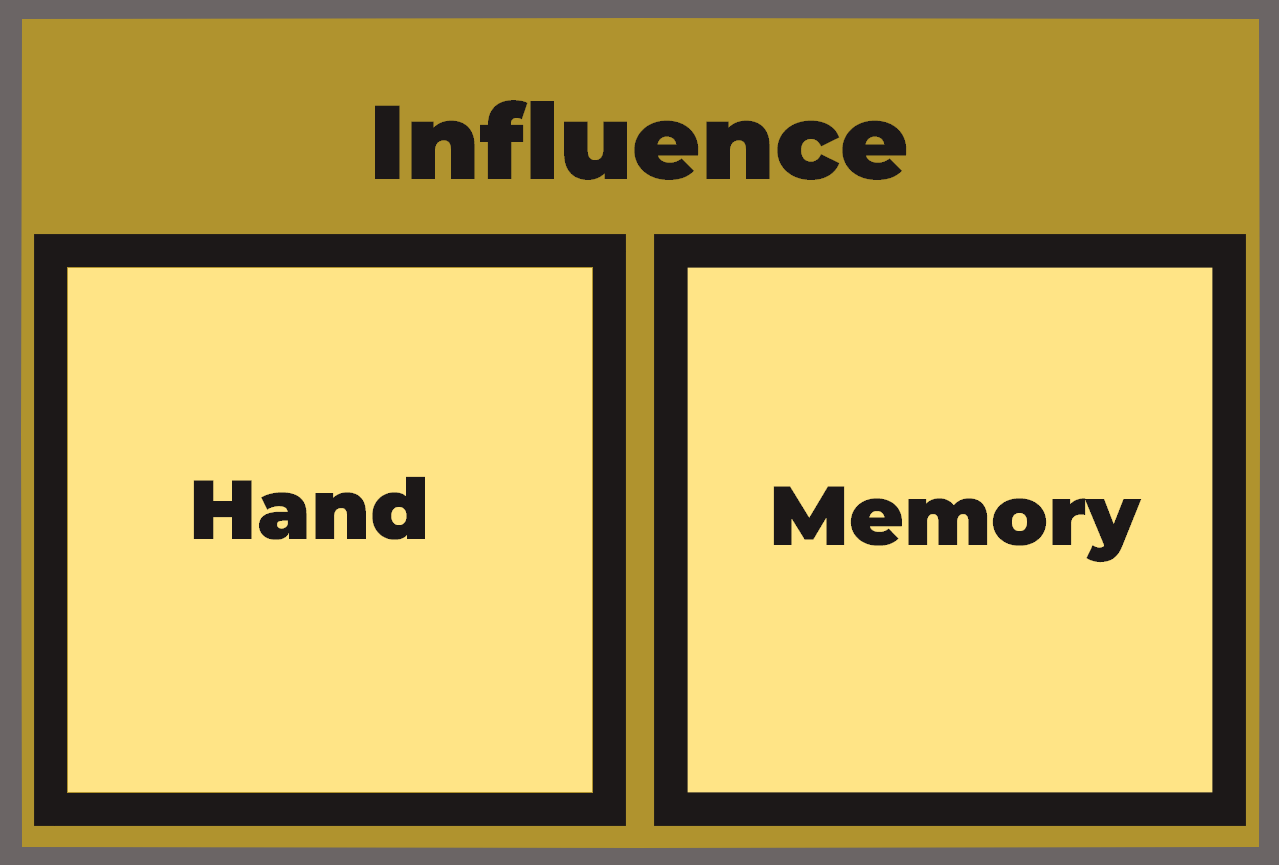
Influence is defined by the rules of Grand Archive as the sum of cards in hand and cards in memory. Certain card effects may compare your influence to your opponents influence or to a target value, and it may be beneficial to have less influence than your opponent does. However, your influence is the most direct measure of how much you can spent activating and materializing cards, so you need to maintain enough influence to make plays. But there is more to Card Advantage in Grand Archive...
"Reservables"
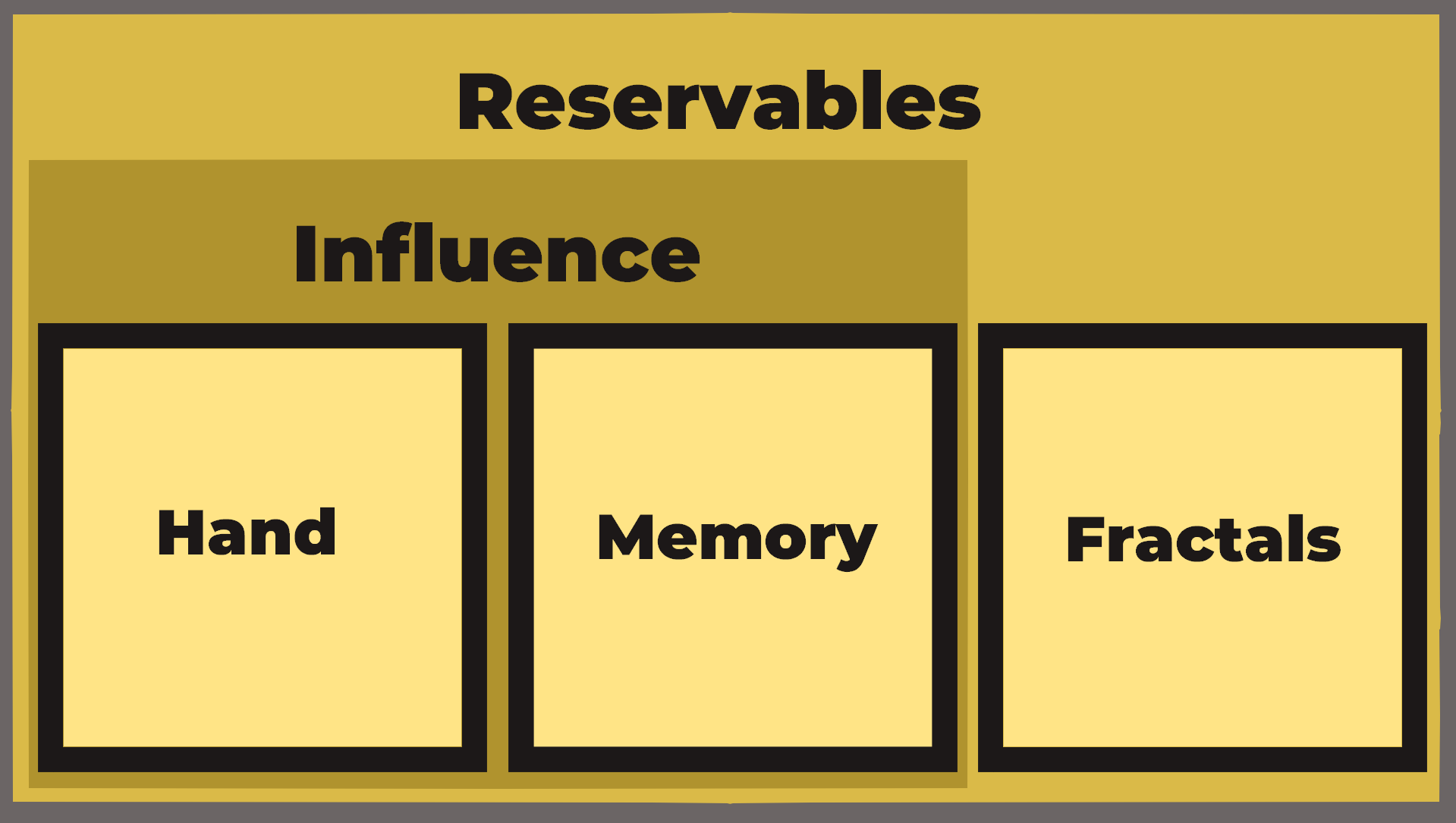
Enter Fractals and the Reservable keyword. When activating cards, you can rest an object with Reservable to pay costs instead of or in addition to placing cards from hand into your memory. The majority of cards with Reservable are fractals, but as new cards are added to the game we may see this keyword applied more broadly. Each card with Reservable extends your ability to activate cards, without counting as part of your Influence and without being banish-able cards for materialize costs. But there is still more to Card Advantage in Grand Archive...
"Wealth" (AKA "Hand Value")
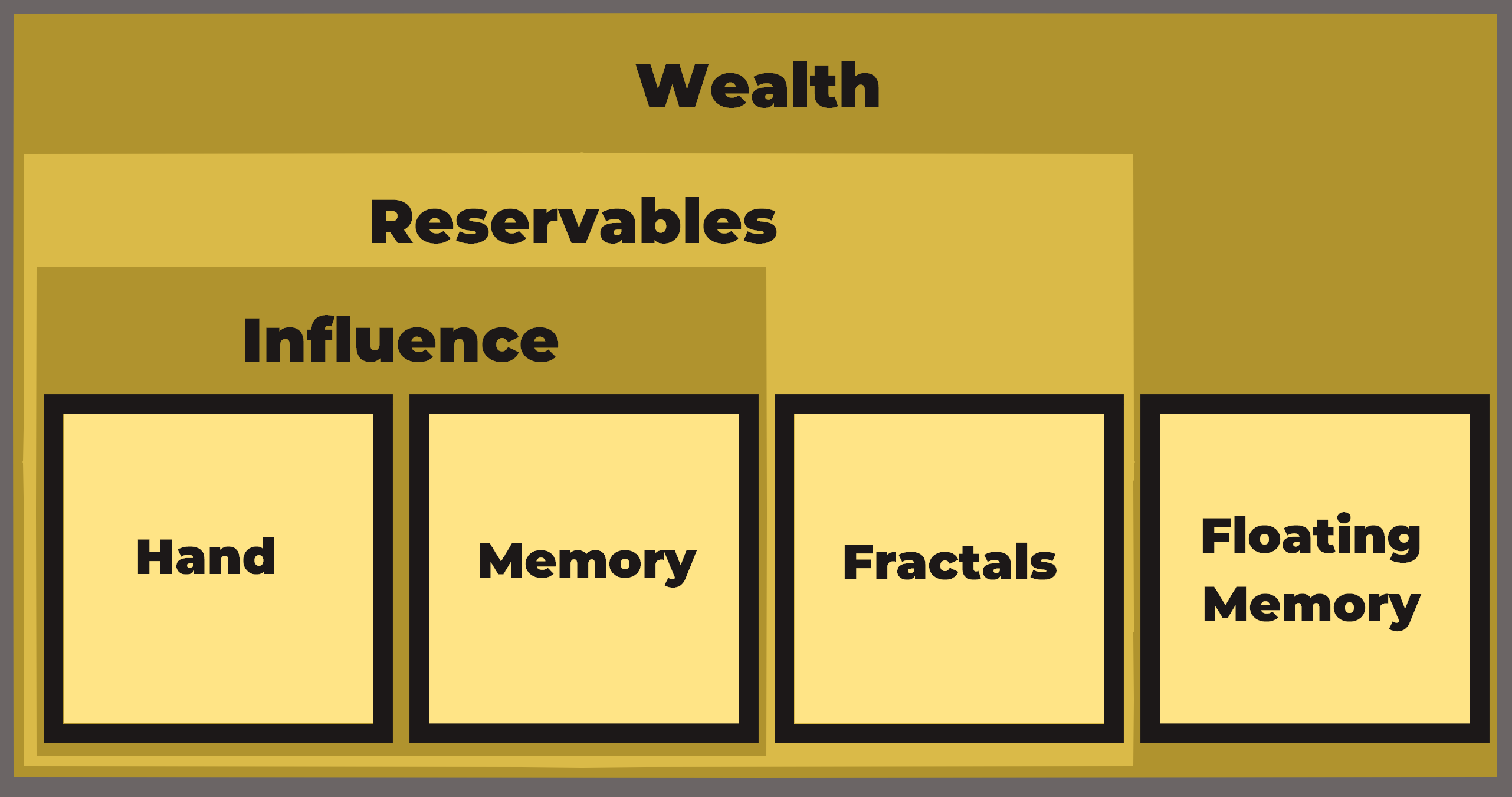
Next up, we have Floating Memory, a keyword that allows for certain cards to be banished from the graveyard to pay for costs when Materializing. Because each card with Floating Memory pays for 1 cost when Materializing, a card with floating memory can be activated for its effect and later still be banished to level your champion or play regalia, which preserves your influence for other plays.
Taken together, Cards in Hand, Cards in Memory, Reservables and Floating Memory in Graveyard are what I am calling "Wealth", also known as "Hand Value". Wealth is the total of all cards usable for Activation and/or Materialization. Wealth is not a term in the rules of Grand Archive, but it often useful to consider when building decks and playing games.
Card Advantage
Add in the other cards you have in play, such as allies on board, and you get your total Card Advantage. This includes weapons, supporting regalia and so on. Each card in play alters the gamestate and many cards will have repeatable effects that are free or come with a nominal cost, letting you take actions with cards on the board in addition to cards from your hand.
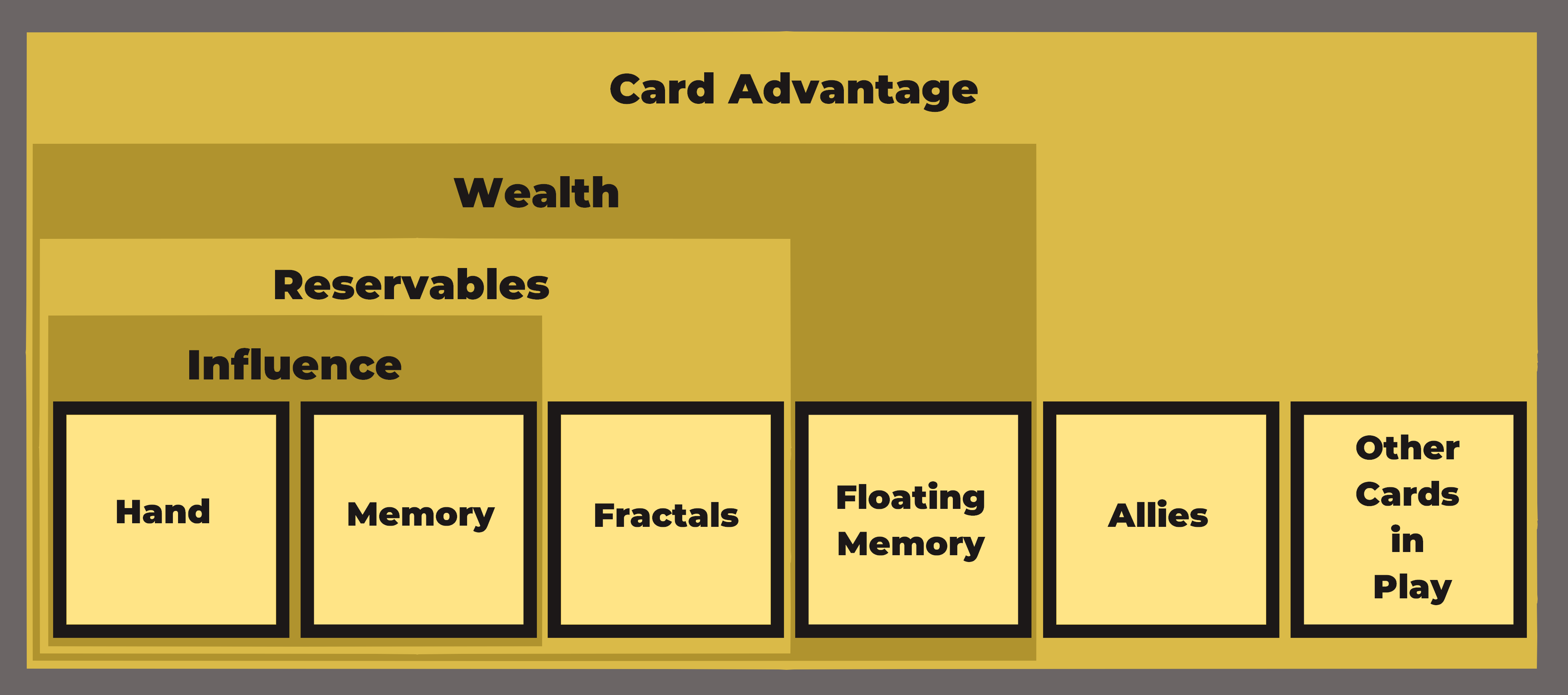
+1
You may have seen or heard players talk about how a card is a "+1" or "goes neutral" or is a "-1". These terms are references to increased or decreased "Wealth"/"Hand Value". If a card effect causes Wealth to increase by 1, it is a "+1" and likewise a decrease in Wealth of 1 is a "-1". But how do you quickly identify the effect of a card on Wealth? Here's a quick list of things that can impact Wealth:
By Default, playing ANY card from hand is a -1, unless effects alter the value.
Drawing a Card is +1. Putting a card into your hand is also a +1.
Cards with Reservable and Floating Memory will generally be Neutral. The Keyword offsets the cost of playing a card from hand.
Materializing a card will reduce wealth proportional to the Materialization cost. (Example: 3 cost = a "-3")
Discarding cards is a minus, unless discarding Floating Memory.
Banishing your opponents cards with Floating Memory will reduce their wealth by 1 for each card banished.
Now for some specific examples:
Creative Shock is either +0 or +1, based on the card discarded by its effect. You play a card (-1) but you draw 2 (+2) and then discard a card (-1). By default, this is a +0, but if you discard Floating Memory it becomes a +1.
Tide Diviner is a +0 by default, but it becomes a +X, where X is the amount of Floating Memory discarded by its effect.
Fairy Whispers is a -1 or a +0. You spend a card (-1) to glimpse and place a card into your hand (+1), but if you fail the condition on its effect and don't get to put a card to hand, it becomes a -1.
Fractal of Insight is a +0. You play a card (-1) to gain a reservable (+1).
Increasing Danger is a +1 for BOTH players. You spend a card (-1) to draw a card (+1) and draw into memory (+1), but your opponent also gets a draw into memory (+1 for them).
Dungeon Guide is a -3 to level your champion immediately. Playing a card is -1 and banishing 2 cards is -2 for -3 overall. So you aren't really saving cards when you Dungeon Guide to Level 3, but don't underestimate the value of an extra materialize and a 1/3 body on the board.
Impact
So, why does Wealth matter? You can have all the cards in the world and still lose if your damage exceeds your Champion's life stat. It matters because more Wealth leads to more plays and those plays have an Impact on the gamestate. More cards leads to more plays and more powerful plays, allowing you to better advance your plan or hinder your opponent.
When you commit to playing a card, you should weigh its Impact and how it will affect your Wealth. Woodland Squirrels is a prime example of this. On its own, it is a "free" 1/1 body on the field, but by playing it you have reduced your influence (and more broadly your wealth). A 1/1 on its own will not have much impact, but when played with other cards the combined impact can be significant. A 1/1 on its own is squishy and easily dies, but that 0 cost card might let you balance a Gildas and swing for 4 with her, or enable you to play Aesan Protector, bouncing back the Squirrel and getting a little damage in the process. That Animal type may enable card draws off Silvie or grant your Bedivere Taunt. If you're activating board-wide buffs this turn, an extra body on board is just extra value.
Closing Thoughts
I hope this article is of benefit to you. While counting cards won't win a game on its own, if you take care to weigh the cost of a card with the impact it brings, you should find that you become a stronger player.
Also, for those who read all the way to the end, allow me to introduce Nyx, Moonlit Blade! You probably saw a sneak peak of her in the header. She's our mascot of sorts, a mysterious Luxem Tamer/Assassin with Jungle Knive(s). Let us know what you think of her! And if you happen to encounter me in person, I may have a card of her for you!
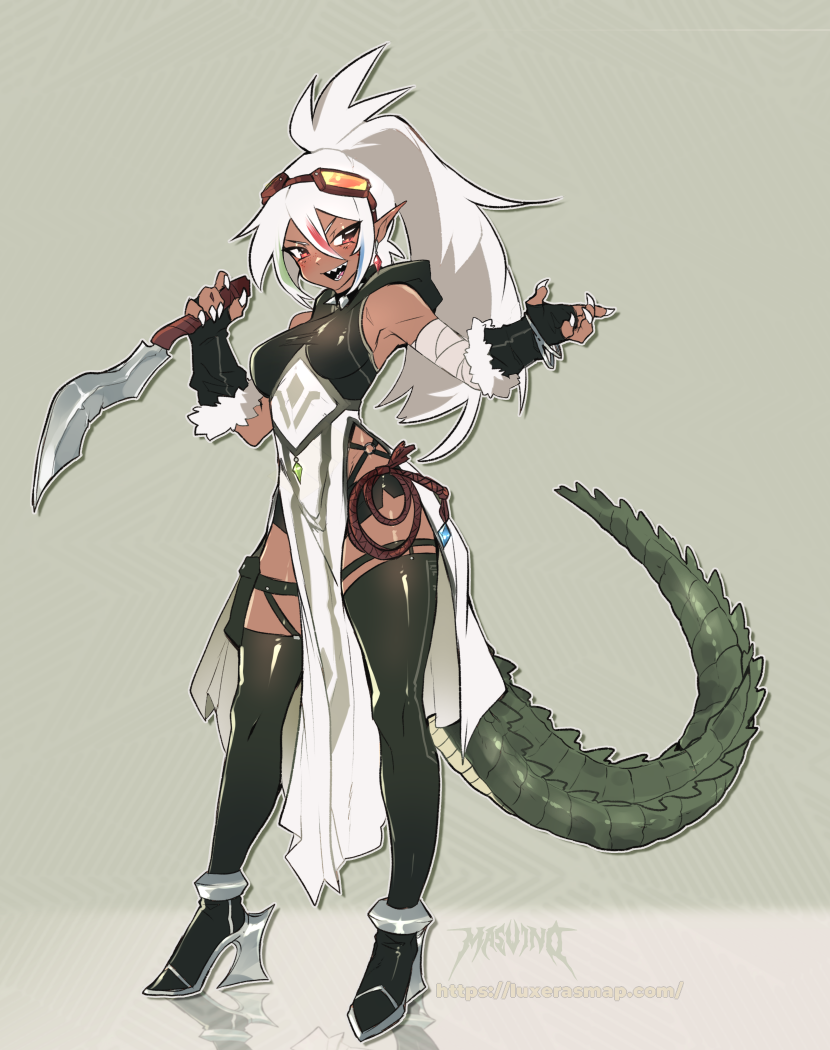
mini ref, watermarked
